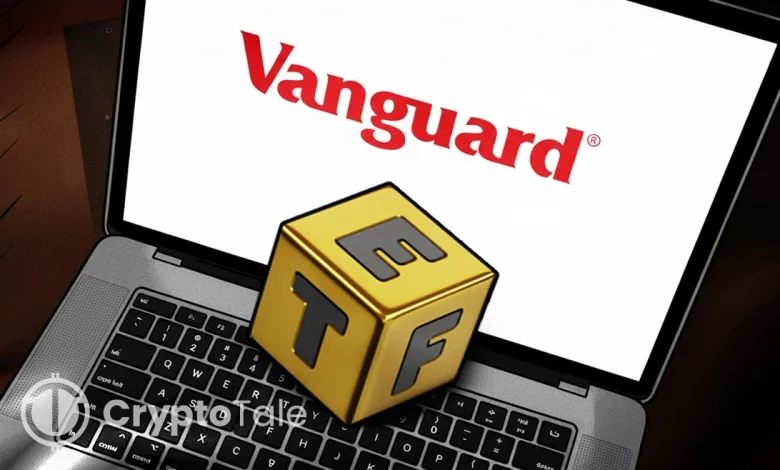Vanguard Will Soon Provide Clients with Crypto ETF Access

- Vanguard is preparing to give brokerage clients access to crypto ETFs via its platform.
- The firm won’t launch its own products but will list selected third-party crypto ETFs.
- This shift could make crypto exposure trusted and bring regulated access to investors.
Vanguard, the world’s second-largest asset manager with $10 trillion in assets, is preparing to allow its brokerage clients access to cryptocurrency exchange-traded funds (ETFs). According to sources, the firm has begun internal groundwork and external discussions as demand for digital assets continues to grow. This development comes as regulators ease restrictions and streamline approvals for crypto-linked ETFs, creating conditions that make access through trusted platforms more feasible.
The shift is crucial, as Vanguard, known for its conservative stance, has long avoided direct exposure to cryptocurrencies. Until now, it has remained cautious while competitors such as Fidelity Investments and Charles Schwab expanded into digital assets. The decision reflects not only client demand but also a changing regulatory environment that is giving more clarity to financial institutions.
Cautious Rollout and Regulatory Context
While Vanguard intends to give clients access to crypto ETFs, the firm has no current plans to launch its own products. Instead, it will make select third-party ETFs available, although the specific funds are yet to be determined. Sources indicate that a conservative rollout is likely, starting with well-established Bitcoin and Ethereum ETFs before any potential expansion into other assets.
The regulatory landscape has shifted in recent months, making this decision possible. The Securities and Exchange Commission has approved generic listing standards, paving the way for additional funds. The streamlined process reduces previous barriers for large asset managers, giving firms like Vanguard a more stable path to integrate crypto products. Washington’s shift is also notable under the Trump administration, where regulators have moved from hesitancy toward active engagement with digital asset markets.
Critics and analysts caution that investor protection must remain central. Some warn that speculative or low-liquidity crypto ETFs could create risks for less experienced investors. Others believe Vanguard’s cautious stance could limit the diversity of products, preventing broader exposure beyond Bitcoin and Ethereum.
Related: Fidelity and Canary Crypto ETFs Reach DTCC Pre-Launch Stage
Leadership Influence and Market Implications
Vanguard’s direction under CEO Salim Ramji provides additional context to this move. Ramji, who previously worked at BlackRock, played a key role in launching BlackRock’s Bitcoin ETF IBIT. That fund attracted more than $60 billion in inflows since January 2024 and now holds over $80 billion in assets.
In August 2024, Ramji told ETF.com that Vanguard would not launch proprietary crypto ETFs. Yet he notably avoided addressing whether the firm would enable access to third-party funds. This ambiguity fueled speculation, which is now partially confirmed by reports of internal planning.
Meanwhile, other asset managers are expanding their offerings. BlackRock recently registered a Bitcoin Income ETF in Delaware, while competitors have filed for funds tied to Solana, XRP, and Dogecoin. Vanguard’s decision to enter at this stage suggests a strategy of balancing innovation with its traditional risk management ethos.
Still, even modest adoption by Vanguard could carry huge weight. Allowing clients to access third-party crypto ETFs through its platform could legitimize digital assets further in the eyes of mainstream investors. For the broader market, this step could drive greater institutional participation, reduce reliance on unregulated venues, and accelerate the adoption of regulated offerings.




